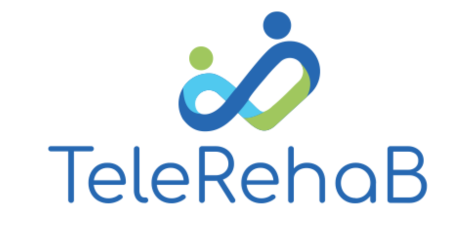AI-powered Remote Personalised Patient Rehabilitation Models for Balance Disorders
Idea is pleased to announce entering the European research project titled TeleRehaB DSS in collaboration with 15 partners of several countries!
Mission & Vision
TeleRehaB aims for developing an AI-based Decision Support System, building upon/expanding on previously developed platforms, tools, obtained results and know-how (i.e., HOLOBALANCE, SMART BEAR projects), to support effective and affordable treatment for patients at risk of fall for both in clinic and remote home-based care.
TeleRehaB DSS targets the promotion of AI adoption in everyday clinical practice for balance rehabilitation training.
Objectives
- To conduct a systematic review of existing evidence in regard to AR interventions and digital tools for falls and balance physiotherapy, in order to identify factors that will optimise patient compliance and to adapt the eHealth solutions accordingly.
- To evaluate existing data about the effect of standard of care in order to calculate economic costs and benefits.
- To unify the existing research and clinical databases, identify gaps in data needed to address the needs of special populations, develop synthetic (reference) data to overcome this barrier and define the structure needed for AI/ML models.
- Develop innovative and appropriate AI models from the complex multifactorial falls/balance disorders data and related socioeconomic costs that will automatically link to patient-specific, cost-effective interventions.
- Develop AI-based predictive analytics for treatment outcomes, side effects and adverse events at baseline and throughout the entire duration of the intervention.
- Develop and validate an economic model to calculate cost-effectiveness of treatment taking into account availability of resources in different healthcare settings as well as differences between healthcare systems in order to adapt technology accordingly.
- Develop and conduct health professional’s profiling for optimal matching with patients targeting increased compliance.
- Engage with stakeholders and representatives of the entire ecosystem (patients, clinicians, developers, health stakeholders) to define and analyse qualitatively user requirements in dedicated focus groups towards research co-creation during the entire project, to ensure engagement with the system (professional/patient) and compliance and adoption within the clinical pathways.
- To validate AI-based DSS functionality in a rigorous way to establish its coherence, validity, usability and performance compared to standard of care.


